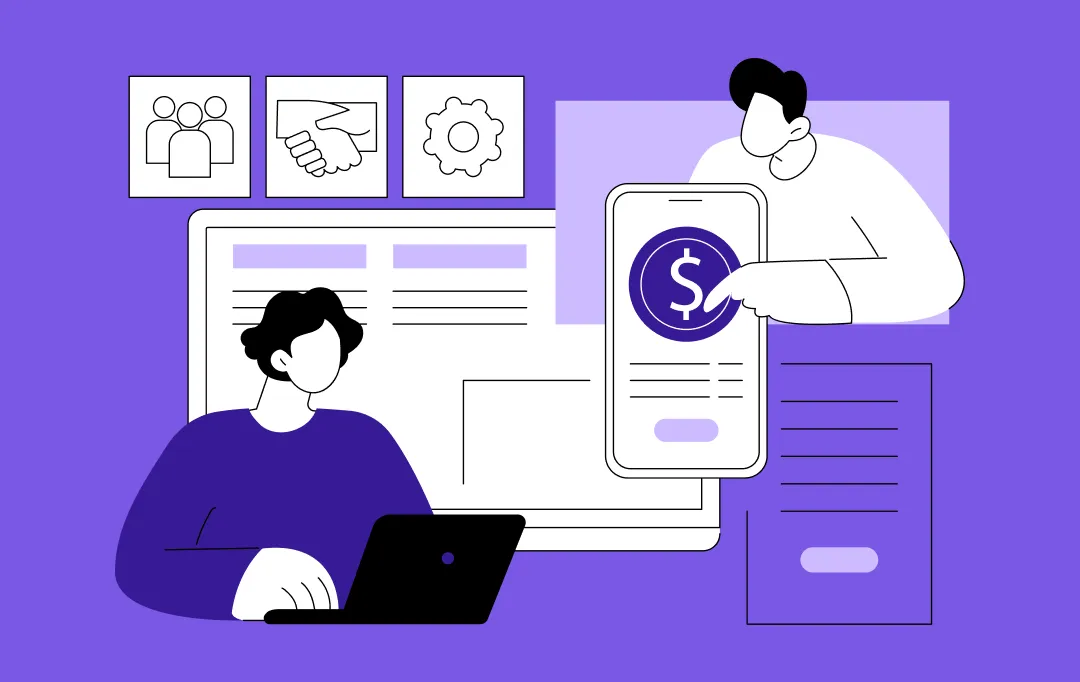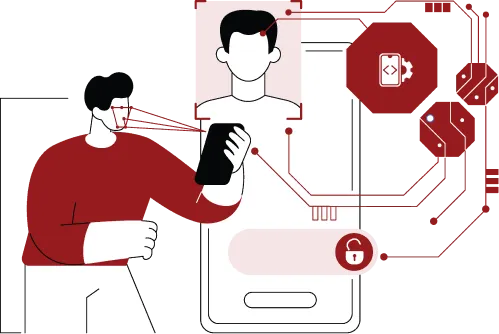- When Should Businesses Consider White Label Solutions?
- Limited In-House Development Resources
- Rapid Market Entry
- Cost Constraints
- Desire to Focus on Core Competencies
- Scalability Needs
- How Does White Label Solutions Differ from Custom Apps?
- Benefits of White Label App Development
- Cost-Effective Approach
- Faster Time-to-Market
- Proven Technology
- Customizable Branding
- Scalability and Flexibility
- Industries Benefiting from White-Label Apps
- Retail & eCommerce
- Healthcare
- Food & Beverage
- Finance & Banking
- Education & eLearning
- Real Estate
- Travel & Hospitality
- Media & Entertainment
- How White Label Mobile Apps Are Developed
- Step-by-Step White-Label App Development Process
- Requirement Analysis
- Design & Branding
- Development & Configuration
- Testing & Quality Assurance
- Deployment & Launch
- Updates & Maintenance
- How to Choose a Reliable White Label App Development Partner
- Proven Expertise and Portfolio
- Customization and Flexibility
- Technology Stack and Integration Capabilities
- Post-Launch Support and Maintenance
- Transparent Pricing and Timelines
- Client Reviews and References
- Common Challenges in White Label App Development and How to Overcome Them
- Limited Customization
- Dependency on the Provider
- Limited Scalability
- Security & Compliance Risks
- Partner With Appinventiv For Your Next White Label App Development Project
- FAQs
- White label app solutions enable businesses to bring products to market quickly and efficiently, without incurring significant upfront expenses, by utilizing ready-made software to stay ahead in competitive industries.
- White label apps can grow with your business, but you’ll want to choose a partner that provides flexible options, offers post-launch support, and integrates seamlessly with your existing systems for future expansion.
- Finding the right white-label app development partner is crucial. Your tech partner should have solid experience, clear pricing strategies, and reliable ongoing support services.
Hire a trusted white label mobile app development partner to deliver fast, secure, and customized apps ready for your audience and market
When Should Businesses Consider White Label Solutions?
White-label solutions are ready-made products or services that one company builds and another company puts their own brand on to sell. They provide a smart way to enhance how customers perceive your brand, foster loyalty, and increase revenue. When businesses use white-label platforms, they can focus on their core competencies while entrusting experts to build and maintain complex software.
Limited In-House Development Resources
White-label solutions prove especially valuable when businesses need specialized functionality like financial management tools, where understanding the cost to build a white-label tax compliance software becomes crucial for budget planning.Rapid Market Entry
In industries that move fast, getting there first can give you a real advantage over competitors. White-label solutions enable businesses to quickly launch their products by leveraging existing and well-functioning platforms.Cost Constraints
Building custom solutions costs a fortune. White-label products offer a cost-effective option that reduces development and operational costs, which is particularly beneficial for startups and smaller companies that need to manage their budgets effectively.Desire to Focus on Core Competencies
When businesses use white-label solutions, they can focus their energy on what they’re actually good at, such as marketing and customer care, rather than getting bogged down in building and maintaining products.Scalability Needs
White-label solutions usually come with systems that can grow with you, so businesses can expand and handle changing customer needs without having to rebuild everything from scratch.How Does White Label Solutions Differ from Custom Apps?
When businesses consider mobile app options, the two main options are white label mobile app development and custom app development. Clearing the confusion to make the right choice is critical. This custom app vs white label app development comparison illustrates the differences between the two, in terms of catering to different business needs – white label apps ensure speed and cost-effectiveness, while custom apps offer flexibility and complete control of the application. Here’s a side-by-side comparison that highlights the key differences:| White Label Apps vs Custom Apps | ||
|---|---|---|
| Factor | White Label Apps | Custom Apps |
| Customisation | Limited, mostly branding tweaks. | Fully tailored to business needs. |
| Design | Generic, reused templates. | Unique, brand-specific UI/UX. |
| Cost | Lower, ready-made solution. | Higher, built from scratch. |
| Scalability | Dependent on vendor updates. | Flexible, grows with your business. |
| Maintenance | Stable but vendor-controlled. | Requires effort but on your terms. |
| Security | Vendor-managed, less control. | Full control, stronger safeguards. |
Benefits of White Label App Development
White-label mobile app development has become increasingly popular among businesses seeking fast, affordable, and reliable digital solutions. By utilizing ready-made applications that can be rebranded and tweaked, companies gain numerous advantages over starting an app project from scratch. Let’s examine the primary benefits.
Cost-Effective Approach
This is the primary reason why businesses love white label mobile app development, as it allows them to save on costs. Designing a fully customized app from scratch can get expensive fast and can incur a lot of investment in design, development, and testing. White label apps are pre-made, so businesses can buy a finished solution and just stick their brand on it. This process greatly lowers the development costs while still providing a quality, professional product. More revenue is generated due to faster development. Since core functionality is already in place, businesses can eliminate the weeks of design and coding, freeing up budget and team time for marketing, identifying new customers, and other business priorities.Faster Time-to-Market
In today’s busy digital world, time is of the essence. White label on-demand app development is a feature that ensures businesses can put their products out in a much shorter time than if they had to create something from the ground up. Since the main features and basic structure are already in place, companies can focus on branding, small tweaks, and going live. Getting your product out faster is not only about satisfying customer demand faster; it gives you a true competitive edge over others. You can respond to what’s happening in the market, grab new opportunities, and get your position before competitors even realise what hit them.Proven Technology
White label solutions use reliable, well-tested systems that actually work. Unlike new experimental apps or freshly written code, these solutions have been through tons of development and testing, so you get fewer headaches with bugs or things breaking down. Many white label apps also come with security already built in, keeping user data safe from day one. The original developers handle regular updates and fixes, so your app stays protected and runs smoothly over time. This gives businesses real peace of mind about their platform working properly.Customizable Branding
Even though these apps are already built, white label app development gives you plenty of room to make changes. Companies are able to rebrand the whole experience according to their identity, such as logos, colors, design elements, and customer communication. This flexibility means that the app somehow feels totally yours while still offering the power of a robust, working platform. The branding options also cover the users’ interactions with the app, in terms of navigation, content layout, feature presentation, and so on. When you personalize these elements for your specific audience, you can provide a more personalized experience that resonates with your brand’s values and keeps users more engaged.Scalability and Flexibility
Another important benefit of white label app development is that it can scale with you. Most white-label solutions are designed to be easily scalable, which means that they can grow to accommodate a larger user base, increased transactions, or content expansion without any significant changes. It’s easy to start with the basics and add more features along the way as your business needs evolve. Many companies have benefited from their white label solutions in terms of growth. Take food delivery startups and retail chains, for instance. Some of these businesses had begun with white label apps to simply test their idea in the market. Gradually, they grew the app to include additional services, get to new locations, and integrate with other systems, all without having to make changes from the ground up.Industries Benefiting from White-Label Apps
White label apps have emerged as a game-changing solution for businesses looking to roll out digital products fast without the hefty price tag of building from scratch. These ready-made applications let companies put their own spin on existing technology, tweaking features and branding to match what their customers actually want. The result? Lower costs, faster launches, and solutions that work right out of the gate. Everyone, from scrappy startups to major corporations, is jumping on this trend to improve how they serve customers, make their operations smoother, and stay ahead of the competition.
Retail & eCommerce
Online retailers are using white label apps to create shopping experiences that actually convert. These platforms are pre-loaded with all that you need: product galleries, customer-trusted payment processing tools, and reward programs that keep people returning. The magic really happens with features such as personalized product recommendations and targeted email notifications that drive sales and keep shoppers engaged with your brand.Healthcare
The healthcare industry has been able to utilize white label apps to provide virtual consultations, appointment scheduling, patient health tracking, and medical record management. Hospitals and clinics use these solutions because they need to ensure that their patients have easy, secure access to care – while preserving their professional reputation and satisfying stringent privacy standards. Also Read: White-Label Telemedicine Platform DevelopmentFood & Beverage
White label applications are utilized in restaurants, coffee shops, and food delivery businesses to facilitate online meal orders, coordinate delivery, and reserve a table. White label business app development within the food sector opens up possibilities for hassle-free experiences of making personalized orders that would make the customers revisit over and over again.Finance & Banking
Banks and financial companies utilize white label platforms for mobile banking services, digital payment wallets, money transfers between users, and portfolio management tools. These solutions allow financial organizations to offer effective, user-friendly services and comply with tough customer regulations and security standards.Education & eLearning
Online learning platforms, virtual classrooms, and skill development courses are being developed using white label solutions in schools, colleges, and training institutes. Such devices facilitate remote learning accessibility for students, and they also enable educational institutions to diversify their offerings without incurring significant expenses.Real Estate
Property companies use white label solutions to display home listings, provide virtual tours, match buyers with agents, and include mortgage calculators. These apps make the home-buying and rental process much easier, letting customers look at properties anytime they want from anywhere. At Appinventiv, we partnered on projects like Ility, a white-label SaaS platform we developed to empower real estate companies. By giving commercial property owners a flexible platform that can grow with them, Ility brought a 40% increase in occupancy and a 2% improvement in landlord ROI, showing how good white label solutions can actually deliver measurable business results.
By giving commercial property owners a flexible platform that can grow with them, Ility brought a 40% increase in occupancy and a 2% improvement in landlord ROI, showing how good white label solutions can actually deliver measurable business results.Travel & Hospitality
Travel agencies and hotels are adopting these ready-made apps for booking systems, ticket sales, trip organization, and customer service. These platforms provide travel companies with a way to create unique experiences for their guests while enhancing their business operations to run more efficiently and effectively.Media & Entertainment
Video streaming services, event planners, and online publishers rely on these customizable platforms for music and video content, ticket sales, live show management, and media distribution. These apps help entertainment brands generate more revenue from their content.How White Label Mobile Apps Are Developed
White label mobile apps give businesses a quick, budget-friendly route into the digital world. Rather than building from scratch, these solutions use existing frameworks and ready-made components, letting companies concentrate on their brand and how customers interact with their product. The development process usually follows two main approaches and involves several important steps: Two Approaches to White Label Mobile App Development- Frontend Customisation with Reused Backend:
- The backend code that runs core functions gets used again for different apps.
- Developers modify the frontend to match each client’s brand, updating colors, logos, layouts, and navigation structures.
- This method lets businesses get a branded app out there fast while keeping the reliability of a proven backend system.
- Feature-Based Multi-Client Model:
- The app gets built with a specific set of features and sold to various companies.
- Clients can add or change features based on what they actually need.
- This model works well for Software-as-a-Service (SaaS) companies, letting them roll out to multiple clients quickly without much extra development work.
Step-by-Step White-Label App Development Process
White label apps provide businesses with the advantage of getting their product to market with a brand-new ready-to-use solution. It guarantees faster deployment, a uniform user experience, and flexibility to add features on the go. Here’s how to create a successful white label app that works for your brand and business goals.
Requirement Analysis
The first step is to understand the client’s actual needs, brand, target customers, and which features will make their app a success. This stage also involves the selection of a proper development strategy: either to change the interface of an existing system or to use a feature-based model for many clients. If you get the requirements correct first, the final app achieves the business goals and addresses the needs of the user.Design & Branding
Once the requirements are set, designers design a UI/UX that reflects the client’s brand identity. This includes adding their brand logos, color schemes, page layouts, and navigation structure. The back-end technology is the same across projects, but the front-end is heavily customized so each client’s application has a completely different look and feel.Development & Configuration
During this phase, the backend systems get set up to handle core functions smoothly. Frontend parts are adjusted to match branding needs, and feature switches are added when the app uses the multi-client approach. This step makes sure the app works properly while keeping options open for future changes.Testing & Quality Assurance
Thorough testing happens across different devices and platforms to confirm everything runs smoothly. QA teams check that all features, connections, and branding pieces work as expected, and they fix any problems or glitches before going live. This step ensures users get a high-quality, dependable app.Deployment & Launch
After testing wraps up, the app gets published on app stores using the client’s brand. The launch also covers user onboarding, setting up push notifications, analytics, and connecting other tools. Good deployment means the app reaches customers effectively and starts providing value right away.Updates & Maintenance
Once the app is live, it is continually supported, patched for security issues, and improved with new features as necessary. Ongoing maintenance ensures that the app is compatible with changes in the operating system and evolving business needs, providing a smooth and secure user experience over time.Let our experts help you adapt, customize, and deploy a white label app that drives engagement and revenue for your business
How to Choose a Reliable White Label App Development Partner
Selecting the right white label app development partner makes all the difference in building high-quality, scalable apps efficiently. Hiring the best tech partner helps businesses save time, cut expenses, and maintain a consistent brand look while leveraging advanced technologies. Here’s what you should think about when choosing a partner:
Proven Expertise and Portfolio
Find a partner who has real experience in white label app development for business, especially if they’ve worked in your field before. Examining their past work provides actual examples of apps that demonstrate solid features, smooth design, and room for improvement. Companies need to focus on projects that demonstrate their ability to adapt to local market needs and what customers here actually want. A good portfolio tells you the partner can deliver reliable, top-notch results every time.Customization and Flexibility
A good partner should offer a white-label mobile app builder that lets you completely customize everything to match your brand and work style. Ensure the app’s features, design, and sections can be modified without compromising its performance or stability. Flexibility means the solution can grow with your business needs, handle special sales periods, and work with how users actually behave. This matters significantly for companies that want to stand out in a crowded marketplace.Technology Stack and Integration Capabilities
Ensure your partner utilizes current, safe, and expandable technology and can integrate the app with your existing tools, such as customer databases, payment systems, data tracking platforms, and reward programs. This helps you run things smoothly while giving your users an experience that just works. A skilled white label app developer ensures the seamless integration with payment gateways such as BPAY, Afterpay, and other preferred payment options among locals.Post-Launch Support and Maintenance
A reliable partner offers continuous support, updates, and troubleshooting after your app is launched. Regular support helps prevent crashes, keeps everything running smoothly, and ensures that your app stays up to date as technology and market changes. For businesses, it’s crucial to select a partner who is aware of the local regulations, app store policies, and compliance requirements. This means you can concentrate on expanding your business while they handle the technicalities of the back-end of things.Transparent Pricing and Timelines
Opt for a partner that provides transparent pricing structures and realistic project timelines to eliminate the risk of unexpected costs or delays. Being transparent about white label app development costs is essential to budgeting and getting value for your business quickly. The most effective way for businesses to capitalize on this is when a business’s local connection, features, and meeting regulations are integrated into pricing. For instance, having a clear plan also means your white label app development for business proceeds without any pauses from idea to going live.Client Reviews and References
Look at customer feedback, success stories, or ask for references from companies in your target market. Comments from previous clients reveal the partner’s reliability, technical expertise, and the quality of their custom solutions. Working with a partner who has strong experience as a white-label app developer means your business can launch apps with confidence, knowing they meet both local and global standards.Common Challenges in White Label App Development and How to Overcome Them
White-label apps offer a quicker and cheaper path for businesses looking to embrace digital transformation, yet they present hurdles that require thoughtful planning. When companies grasp these potential roadblocks and prepare solutions beforehand, they can maximize their return on investment. This section examines the most common white label app development challenges and offers practical solutions to overcome them.
Limited Customization
Challenge: Since white-label apps come ready-made, they typically limit how extensively you can modify features, visual elements, or operational processes. For companies operating in fiercely competitive sectors, this restriction can complicate efforts to differentiate themselves and deliver memorable brand interactions. Solution: Select a white label mobile app builder that supports modular adjustments. Partner with vendors who provide adaptable templates, branding capabilities, and expandable features that allow gradual app evolution. This approach helps your company preserve its unique character while capitalizing on the efficiency that white-label platforms deliver.Dependency on the Provider
Challenge: When you rely heavily on one white label app developer, you’re putting all your eggs in one basket. What happens if they stop updating your app, ignore security problems, or can’t adapt to new industry rules? Your app could become outdated or leave you vulnerable to security breaches. Solution: Pick companies that spell out exactly what they’ll do for you, when they’ll update things, and how they’ll help when problems pop up. Look for providers who really understand white label app development for business in your space. This way, you won’t get stuck with downtime and your app stays fresh as your industry changes.Limited Scalability
Challenge: Many white-label apps can’t keep up when your business takes off, particularly during busy periods like flash sales or holiday rushes. Apps with weak foundations often slow down or crash completely, which hurts customer confidence and costs you money. Solution: Choose a partner whose platform runs on the cloud and can actually grow with you. Ask them straight up how much traffic they can handle and if they use modern hosting that can expand quickly when needed. Good infrastructure means your app won’t buckle under pressure as your business gets bigger.Security & Compliance Risks
Challenge: Apps that process payments or store customer information need to follow local laws and international rules. Some white-label solutions cut corners on security, which could lead to data theft, hefty fines, or serious damage to your reputation. Solution: Make sure your provider follows proper security practices, uses strong encryption, and meets industry standards. Ask them directly about their approach to data protection, GDPR, and PCI DSS certification. This keeps your app secure, legal, and something customers can actually trust.Partner With Appinventiv For Your Next White Label App Development Project
White-label apps are gaining popularity as companies seek to launch digital products quickly without incurring significant expenses. However, there are bumps in the road, such as not being able to make changes quickly enough, growth issues, and maintaining a consistent brand image, which makes selecting the right development team crucial. Appinventiv, as your trusted white label app development services partner, help close the gap between getting apps out quickly and making them work exactly how you want. Our experience means businesses don’t have to settle for lower quality, missing features, or losing their brand personality. We support businesses through every part of white label app development:- Strategic Planning: Understanding your business objectives, target audience, and key features to determine the optimal white label path forward.
- Customisation & Branding: Taking existing frameworks and making them match your brand personality, plus adding special features that help your app stand out from the competition.
- Robust Development & Integration: Using solid architecture, secure coding practices, and smooth connections with your current systems so everything runs without problems.
- Ongoing Support & Growth: Keeping your app updated with security fixes and new features so it grows right alongside your business.
FAQs
Q. How much does it cost to build a white label app? A. White label app prices depend on features, platforms, and technical needs. The price is usually between $30,000 and $150,000 in the case of a single-platform application with rudimentary features. When you include more advanced features and cross-platform compatibility, it may get up to $150,000 to $300,000. The main aspects on which the price depends are the features of the app, the technology stack selected, the platforms (targeted), and the location (where the development team is based). Also Read: White Label Insurance Quoting Software Development Cost Q. Is a white label app right for my business? A. White label apps work great for businesses that need to get digital products out there fast without breaking the bank. They’re perfect for companies wanting solid features that already work well, rather than building everything from scratch. If your business prioritizes getting to market quickly, growing smoothly, and keeping costs reasonable over having total control over every detail, then white labeling might be exactly what you need. Q. What are some of the top white label app examples? A. White-label apps get used everywhere when businesses want to roll out digital products fast using stuff that already works. Here are some examples you might recognize: Uber Direct: This service lets businesses add Uber’s delivery system right into their own websites or apps. Companies get professional delivery without having to build that whole system themselves. MailMunch: They give businesses ready-made email marketing tools that can carry your brand name. You get automation, lead capture, and campaign management without starting from zero. Zoho White Label Service: Zoho lets companies put their own branding on apps like CRM systems and marketing tools. You don’t need to know how to code, but you still get professional software with your logo on it. Bizzabo: They create event apps that resemble yours completely. Whether you’re running in-person meetups, online webinars, or mixed events, the app carries your brand and does what you need. Q. What are the key differences between white label mobile apps & custom mobile apps? A. White label mobile apps are pre-built solutions with limited customization, allowing minor branding changes but offering faster deployment and lower costs. Custom mobile apps, on the other hand, are built from scratch to match your specific requirements, providing full control over features, design, and user experience. While white label apps save time and money, custom apps ensure uniqueness, scalability, and flexibility, making them ideal for businesses that want a fully branded, tailor-made solution.

- In just 2 mins you will get a response
- Your idea is 100% protected by our Non Disclosure Agreement.

Step-by-Step Guide to Digital Tipping Platform Development for Australia: Features, Costs & ROI
Key takeaways: Digital tipping is now a system-level decision Once tips move through digital payments, they intersect with payroll, reporting, and workforce trust. Informal handling does not scale. Sector-specific design determines success Cafés, restaurants, hotels, delivery services, and franchises each require different allocation logic and operational controls to reflect how work is delivered. Cost reflects…

Building a Future Ready Real Estate Platform in Qatar for Vision 2030
Key Takeaways Future-ready real estate platforms in Qatar are treated like infrastructure, not apps. They’re built to last, with strong data, clear governance, and room to adapt as policies and projects evolve. Off-the-shelf tools work only until complexity shows up. Once approvals, compliance, and multiple stakeholders are involved, custom platforms usually hold up far better.…

Investing in the Future: Why Arabian Education App Development is Surging
Key Takeaways: Education apps in the Arabian region are no longer stopgap solutions. They’re becoming part of how learning actually runs day to day. Schools, universities, and governments are choosing platforms that scale quietly and fit real teaching routines. The apps that succeed focus on stability, integration, and usability rather than packed feature lists. Most…




































